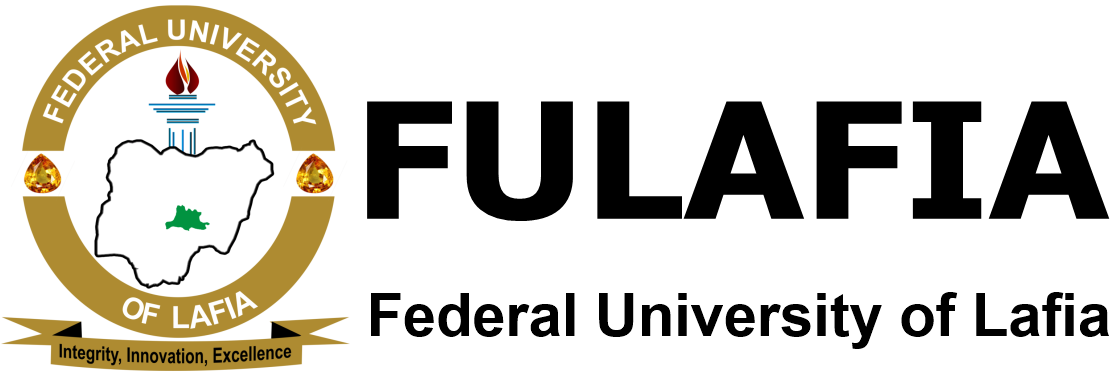
About Us
The study of Zoology is of great importance to man. It has helped man recognize the living things and adapt himself according to the environment. The students of Zoology can learn about animals and Zoological principles which may help them for proper maintenance of life. Zoologists acquire the power to evaluate nature which is not possible by the other means.
The scope of applied Zoology is innumerable. It provides the knowledge of medicine, dentistry, veterinary medicine, medical technology, nursing, museum work, zoological teaching, zoological research, agriculture, environmental science and conservation.
Genetics is also a branch of Zoology (Biology) and its knowledge has brought revolution in animal (and plant) breeding. There is every possibility that our non-renewable natural resources will be exhausted in near future. The conservation of these natural resources may be possible through zoological knowledge. There is a natural equilibrium between animals and plants on earth. When distorted, a struggle for food and space occurs which may lead to serious consequences. Man is also included in this struggle and is associated with other animals due to some other needs and one can have a thorough knowledge of these associations through study of Zoology.
Our goals
Vision:
Specifically, the major objectives of the Zoology programme are:
1. To provide students with a broad, sound and practical skills in Zoology.
2. To develop in students, enthusiasm for Zoology and appreciation for its applications in other biological sciences.
3. To provide service courses to students in other disciplines requiring a working knowledge of Zoology.
4. To prepare graduates for teaching and stimulating research work in Zoology in higher institutions of learning.
5. To prepare students with a broad, sound and balanced knowledge in Zoology and its applications in all aspects of human life particularly health care delivery, public health, pharmaceutical industries, forensic science, food security and environmental monitoring.
6. To develop in students, enthusiasm and skills in productive research for solving current problems, including acquisition of knowledge in developing innovative skills.
Programmes
Programs:
1. B.Sc. Zoology
The programme has been designed for a minimum period of eight semesters (four years) and a maximum of twelve semesters (six years) to provide a sound understanding of the concepts and methodologies of Zoology in key areas that meet the society’s needs. The main objectives of the programme are to broadly educate students in both pure and applied Zoology curricula for positions in the public and private sectors, and to prepare them as graduates in the fields of Human and Animal health, Agriculture, Ecology and Environment, Hydrobiology and Fisheries and Research.
*(Where a student fails to complete the course of study within the maximum residency period, such a person may appeal in writing for an extension of programme to the Chairman of Senate through the Head of Department).
2. M.Sc. Zoology
AREA OF SPECIALISATION
a. Applied Entomology and Parasitology
3. Ph.D. Zoology
a. Applied Entomology and Parasitology
1. B.Sc. Zoology
The programme has been designed for a minimum period of eight semesters (four years) and a maximum of twelve semesters (six years) to provide a sound understanding of the concepts and methodologies of Zoology in key areas that meet the society’s needs. The main objectives of the programme are to broadly educate students in both pure and applied Zoology curricula for positions in the public and private sectors, and to prepare them as graduates in the fields of Human and Animal health, Agriculture, Ecology and Environment, Hydrobiology and Fisheries and Research.
*(Where a student fails to complete the course of study within the maximum residency period, such a person may appeal in writing for an extension of programme to the Chairman of Senate through the Head of Department).
2. M.Sc. Zoology
AREA OF SPECIALISATION
a. Applied Entomology and Parasitology
3. Ph.D. Zoology
a. Applied Entomology and Parasitology
Staff of the department
1. Name: Prof. Victoria A. Pam
Position: HOD
Rank: Professor
2. Name: Dr. James I. Maikenti
Position: Student Adviser
Rank: Lecturer I
3. Name: Mr. Hussein O. Ahmed
Position: 200L Adviser
Rank: Lecturer I
4.Name: Mr. Akwashiki Ombugadu
Position: 100L Adviser
Rank: Lecturer I
5.Name: Mr. Oseghale P. Aimankhu
Position: Time Officer
Rank: Lecturer I
6. Name: Dr. Mohammed A. Ashigar
Position: Pg. Coordinator/300L Adviser
Rank: Lecturer II
7. Name: Mr. Alhassan A. Aliyu
Position:
Rank: Lecturer II
8.Name: Mrs. Scholastica O. Ayuba
Position: SIWES Coordinator
Rank: Lecturer II
9.Name: Mr. Simon A. Odey
Position: Exams Officer/ 400L Adviser
Rank: Lecturer II
10.Name: Mr. Samuel K. Mok
Position:
Rank: Graduate Assistant
11.Name: Mr. Lawrence E. Kubiangha
Position: Head of Zoological Garden
Rank: Chief Technologist
12.Name: Mr. Kajibia S. Dogo
Position: Head of Laboratory
Rank: Principal Technologist
13.Name: Mr. Salihu Yaro
Position: Head of Animal Farm
Rank: Principal Technologist
14.Name: Mr. Hashimu Abdullahi
Position:
Rank: Senior Technologist
15.Name: Mr. Yahaya M. Ahmad
Position: Asst. Head of Laboratory
Rank: Technologist I
16.Name: Mr. Mr. Aliyu Mohammad Rabiu
Position:
Rank: Technologist II
17.Name: Mr. Ali O. Mammon
Position: Head of Admin.
Rank: Assistant Registrar
18.Name: Mr. Daniel Yusuf
Position:
Rank: Admin. Officer
19.Name: Mr. Yakubu Adamu
Position:
Rank: Senior Executive Officer
20.Name: Mr. Mohammad Baba Hassan
Position:
Rank: Assistant Executive Officer
21.Name: Mr. Sunday Kodo
Position:
Rank: Senior Porter
HOD's profile
I have worked in the research institute system and Civil Service for 24 years (1999 to date). I am currently a Professor with the Federal University of Lafia. I am actively engaged in full-time teaching and research at both Undergraduate and Postgraduate levels and also thought as a senior lecturer on Sabbatical in University of Jos and Visiting Senior lecturer at the Nasarawa state University and Visiting with Plateau state University, as well as other assigned ad-hoc responsibilities. I rose through the rank from Assistant lecturer to Professorship and I have been the HOD from 23rd November 2017 to Date.
Prof. V. A. Pam
Prof. V. A. Pam
News Update
The Department runs B.Sc. in Zoology, M.Sc. in Zoology, Ph.D. in Zoology and last year had accreditation exercise and await the result of accreditation exercise.
Conference & Workshop
1. 47TH Annual Conference and PPSN 50th Anniversary with the Theme: “Global Control, Elimination and Eradication of Public Health Diseases – A Reflection” at Grard Amari Hotel and resort, Grace Land Estate, Egbeada, Owerri, Imo State. 10th – 14th October, 2023.
2. Zoological Society of Nigeria (ZSN) International Conference. With the Theme: “Wealth Creation in the Post Subsidy Era” zoological alternatives. Nasarawa State University, Keffi. 8th – 11th November, 2023.
3. 5th Annual International Conference of the Society for Animal and Environmental Biology (SAEB) at University of Nigeria Nsuka. 7th – 10th November, 2023.
4. Introduction to Basic Molecular Biology, Bioinformations, and Molecular Modelling by Helix Biogen Institute. Online Training from 3rd – 5th January, 2023.
Admission Requirements
UTME
The entry requirements shall be at least credit level passes in five subjects including English Language, Mathematics, to form the core subjects with credit in three other relevant science courses Biology, Chemistry and Physics at the Senior Secondary School Certificate or its equivalent. In addition, an acceptable pass in the Unified Tertiary Matriculation Examination (UTME) into 100-level is required.
DIRECT ENTRY
Students with Ordinary National Diploma or Nigeria Certificate of Education (NCE) with Upper Credit pass or two A level passes (graded A-E) at the GCE Advanced Level in relevant subjects (Biology, Botany, Chemistry, Mathematics and Physics) may be admitted into 200- Level. Direct entry students must also have credit level passes in the five subjects required for UTME admission.

Welcome Address
Department welcome her new students particularly the Undergraduate by directing them to their level coordinators as their first point of contact for counseling and guidance.
Secondly, there is always orientation of new students. The intention is to sensitize the student on the University rules and regulations.
Finally, Department issue Departmental Handbook to new student as a guideline to follow.

